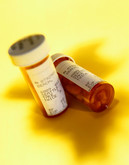Pharma News
Innovative biologicals development must be preserved
As reported by Gene Quinn on IPWatchdog.com, for many months we have been hearing about the US government attempts to “reform” health care in the United States, and in the first weekend of December 2009 the US Senate was actually working, as the contentious debate continues. Even a relatively rare Presidential visit to Capitol Hill was scheduled for the afternoon of 6 December 2009, presumably so President Obama can rally the troops for whatever lies ahead. While patent policy has not taken centre stage in these debates, it is hard to ignore the under current that rages through the debates. Health care costs too much, so costs need to be contained. Of course, market initiatives like a national heath insurance market, which would lower premiums for everyone overnight, are not being considered.
Pfizer plans to launch biosimilars of Top 10–15 biologicals
Pfizer, which became the biggest drugmaker selling widely prescribed pills such as the Lipitor heart medicine, is preparing to enter the business of making cheaper copies of pricey, injectable drugs from biotechnology.
Establishing an API manufacturing base in China
According to an analysis by Robert Kennedy, Manager of Industry Research for Thomson Reuters API Intelligence, as published in Scrip News of 9 December 2009, a striking number of Chinese companies are gearing up to supply pharmaceutical ingredients to the regulated markets of the west.
China API sourcing: the way forward
According to an analysis by Robert Kennedy, Manager of Industry Research for Thomson Reuters API Intelligence, as published in Scrip News of 9 December 2009, a striking number of Chinese companies are gearing up to supply pharmaceutical ingredients to the regulated markets of the west.
Can China retain its API sourcing appeal?
China has a burgeoning active pharmaceutical ingredient (API) manufacturing base, albeit one focused largely on achieving quick profits in the domestic sector. According to an analysis by Robert Kennedy, Manager of Industry Research for Thomson Reuters API Intelligence, as published in Scrip News of 9 December 2009, a striking number of Chinese companies are gearing up to supply pharmaceutical ingredients to the regulated markets of the west.
China's appeal of the Chinese API sourcing market
According to an analysis by Robert Kennedy, Manager of Industry Research for Thomson Reuters API Intelligence, as published in Scrip News of 9 December 2009, a striking number of Chinese companies are gearing up to supply pharmaceutical ingredients to the regulated markets of the west.
Sourcing APIs from China
According to an analysis by Robert Kennedy, Manager of Industry Research for Thomson Reuters API Intelligence, as published in Scrip News of 9 December 2009, a striking number of Chinese companies are gearing up to supply pharmaceutical ingredients to the regulated markets of the west.
China is not the low-cost option in every category
According to an analysis by Robert Kennedy, Manager of Industry Research for Thomson Reuters API Intelligence, as published in Scrip News of 9 December 2009, a striking number of Chinese companies are gearing up to supply pharmaceutical ingredients to the regulated markets of the west.
Considerations about the exclusivity period of biologicals
A proposal by US Democratic Representative Anna Eshoo included in the US House health reform bill, would give developers of innovative biomedical drugs 12 years of data exclusivity from generic competition, significantly extending their patent rights, writes Los Angeles Times columnist Michael Hiltzik.
Emerging markets: a clearer categorisation needed
Emerging markets are a popular topic at the moment, with pharma firms seeking sales growth outside the mature and slowing markets of the west.
Emerging markets key to Big Pharma growth
There is a growing consensus in the pharmaceutical industry that emerging markets will have to be a crucial component of the big players’ businesses if they are to maintain growth in the coming years.
US direct-to-consumer advertisements ‘led to higher drug prices’
A new study by Dr Michael Law et al. of the University of British Columbia in Vancouver, Canada, published in the Archives of Internal Medicine of 23 November 2009, suggests that US direct-to-consumer advertising (DTCA) for a top-selling drug had no effect on prescribing rates, but led to a major rise in the drug’s price. Use of Bristol-Myers Squibb/sanofi-aventis’ blood-thinner Plavix (clopidogrel), which first appeared on the market in 1998, did not increase as a result of the consumer advertising campaign for it, which began in 2001. However, a “sudden and sustained increase” in the drug’s price after the advertisements commenced cost 27 state Medicaid programmes an additional US$207 million in pharmacy expenditures during 2001–2005, say the authors.
Is the pharmaceutical industry ‘innovating to extinction’?
A new study in the Journal of the American Medical Association (JAMA) of 25 November 2009 examines an increasingly problematic phenomenon in the pharmaceutical industry: ‘innovation to extinction’. In short, the better pharmaceutical companies do their job, the more difficult it will be for companies to create innovative therapies, particularly for well-treated populations (and thus they increasingly focus on generics and biosimilars ...).
CMO market to be worth US$33.7 billion by 2014
The market for contract manufacturing organisations (CMOs) will be worth US$33.7 billion (Euros 22.4 billion) by 2014 according to the latest Business Monitor International (BMI) report The CMO Market Outlook: Emerging Markets, Key Players and Future Trends published in October 2009, which says developing biologicals/biosimilars capabilities is a key imperative for growth.
US lobbying, campaign contributions, and healthcare reform
As pointed out by Mr Robert Steinbrook in NEJM.org on 19 November 2009, interest groups are spending huge sums of money to influence the final US legislation and other matters pending in Washington. Since 2006, the health sector has spent US$1.7 billion lobbying Congress and federal agencies – more money than any other sector of the economy. Between January and September 2009, healthcare interests spent US$396.2 million. If current trends continue, the health sector is likely to spend more than half a billion dollars on lobbying in 2009. Pharmaceutical and healthcare products companies alone are likely to spend more than US$250 million, and the insurance industry, which is part of another sector, more than US$160 million. In all cases, these would be record annual expenditures.
Biopharma growing fast due to lower generics threat
Biopharmaceuticals, which are the fastest growing sector of the pharmaceutical market, are causing demand and manufacturing capacity issues, delegates heard at the Visiongain 3rd Annual Contract Manufacturing Conference meeting in London, UK, this week.
US drugmakers furious over price probe demands
US drugmakers have reacted with fury to two separate calls by Members of Congress for official inquiries into allegations of industry ‘price gouging’ in anticipation of healthcare reform.
Europe could beat US in biopharmaceutical innovation
Europe could overthrow the US as a leader in the biotech-drug industry if US lawmakers decide to shorten intellectual property protection for brand-name biologicals under proposed legislation, writes Ms Benedetto della Vedova, former member of the European Parliament, in The Wall Street Journal. A proposal to provide five to seven years of protection – shorter than Europe's 10 years – would stifle innovation and diminish the chance of US companies to be globally competitive, giving way for European firms to create the next generation of biotech treatments, Ms della Vedova writes.
Big Pharma seeks growth in emerging markets
China is the place to be for Western drugmakers seeking insurance against slowing growth, but plenty of other emerging markets are also tempting for Big Pharma, executives told the Reuters Health Summit.
Brand-name and generics firms fight over bulk drug supplies
The Federal Trade Commission (FTC) expressed concern about the practices of brand-name drugmakers after generic drug companies complained they can not get bulk supplies of some medicines they want to copy.
Pharmaceutical sector back in the EU antitrust spotlight
The raids on 6 October 2009 on the premises of several pharmaceutical companies show that the European competition authorities are serious about taking action against suspected anticompetitive behaviour in the EU generics market.
Johnson & Johnson ‘buys’ to fight generic competition
Johnson & Johnson reported on 13 October 2009 that third-quarter revenue from pharmaceuticals fell 14.1% to US$5.3 billion (Euros 3.59 billion) compared to the prior-year period, due to generic competition and the negative impact of currency exchange. Net income for the three-month period increased 1.1% to US$3.3 billion (Euros 2.23 billion), due in part to reduced costs from job reductions and the consolidation of the company's management structure.
EU warns pharmaceutical industry of new competition probes
The European Commission warned the pharmaceutical industry yesterday to “look out for” new antitrust investigations over the coming months.
Pharma tempted into generics in emerging markets
With many western generics markets showing sluggish growth, the lure of big emerging economies such as India is proving irresistible to pharmaceutical companies looking for promising new outlets – and not only generics firms.
GlaxoSmithKline may eye five percent stake in Dr Reddy's
There is speculation that GlaxoSmithKline (GSK) is in talks to buy a 5% stake in Indian drugmaker Dr Reddy’s Laboratories in a deal likely to be valued at US$150 million (Euros 101.47 million), an Indian newspaper reported on 18 September 2009.
European patent will make medicines cheaper
Big pharmaceutical concerns manage to keep out cheaper medicines, even if the patents have expired. These firms would not be so good at this if a European patent would exist, says Mr André den Exter of the Institute of Health Policy and Management, Erasmus University Rotterdam/Erasmus Observatory on Health Law at Rotterdam in The Netherlands.
Big Pharma chiefs warn of ‘sea change’ in drug industry
Product pipelines are under serious pressure as pharmaceutical companies face competition from generic rivals and smaller biotechnology groups are struggling to secure backing from venture capitalists because of the recession. The industry has seen a string of so-called mega-mergers, including Pfizer's US$68 billion (Euros 48.66 billion) deal for Wyeth, but AstraZeneca CEO Mr David Brennan will reiterate his opposition to this type of deal and claim collaborations are essential to boosting drug development.
Radical treatments for difficult times
The economic downturn is only one of many factors forcing the drug industry to rethink its strategy reported Financial Times pharmaceuticals correspondent Mr Andrew Jack in the British Medical Journal. According to him, large drug makers such as AstraZeneca, GlaxoSmithKline, Merck and Pfizer are being forced to adapt at an increasing pace to a range of growing pressures.
API opportunities in biologicals, biosimilars and generics
The active pharmaceutical ingredient (API) market, traditionally dominated by small-molecule drugs, is currently witnessing a rapid shift towards biopharmaceuticals. At the same time, the manufacturing volume outsourced to contract manufacturing firms is on the rise. As plain vanilla generics continue to get highly competitive, API manufacturers are searching for newer avenues such as the production of high-potency APIs to differentiate themselves from competition.



















